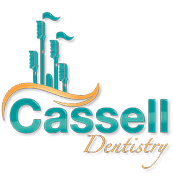How Strokes Are Connected to Poor Oral Health
A stroke can have serious and lifelong effects, so it is important to take steps to prevent their onset. What many people don’t understand is that oral health and strokes are actually connected. By better understanding that connection, you can take steps to keep yourself safe.
Gum Disease and Stroke Risk
Studies have found that strokes and gum disease actually have many things in common. Both have serious implications, and both are fairly common in the U.S. More importantly, both stroke and gum disease involves inflammation, which may be where they are connected. According to periodontal research, patients who have suffered a stroke were more likely to have an oral infection when compared to participants in a control group.
Oral Health after a Stroke
Another issue to think about when considering strokes and oral health is the ability to care for your teeth after a stroke. Many people suffer lasting consequences, including speech and dexterity issues. If you are one of them, you might have to take some steps to improve your oral health:
- Add a fluoride mouth rinse. If oral hygiene has become difficult, a fluoride mouthwash can strengthen and protect your teeth.
- Use adaptive aids. If you have a hard time maintaining your oral health after your stroke, adaptive aids may be helpful. Floss threaders can help you to floss, and toothbrush extenders may be beneficial.
- Keep up with your dental appointments. We can examine your teeth to ensure you are caring for them properly. We’ll also remove plaque and tartar, which are major culprits when it comes to gum disease and decay.
If it is time for your next dental appointment, give us a call to schedule. If anything has changed since your last appointment, including a stroke or any other health problem, be sure to update us with this information.
